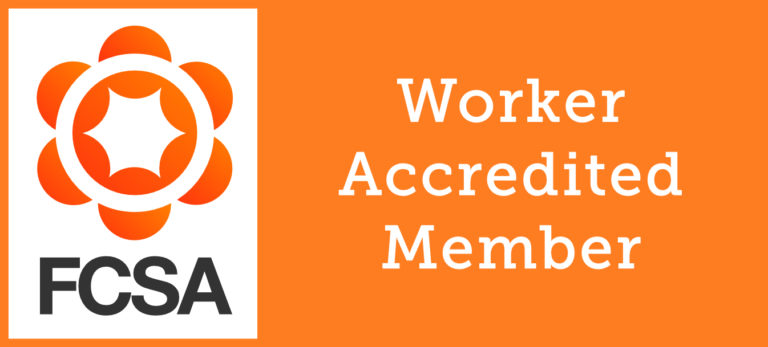
Whilst the Covid-19 pandemic brought unprecedented challenges for the global recruitment industry, the UK’s departure from the EU is set to create a new set of issues – and fresh opportunities. Brexit saw the freedom of movement between the UK and Europe end at the start of the new year, creating fundamental permanent changes to the way that we live and work, and particularly impacting recruitment agencies and growing businesses.
Our specialist payroll team are experts in compliant recruitment support – here we provide our answers to everything recruiters need to know following Brexit.
What Do Recruitment Agencies Need to Do to Hire After Brexit?
1. Check Your Existing Contractors and Pipeline Candidates Have the Right to Work
In order to remain compliant with new legislation and best support client businesses, staffing agency leaders must proactively identify any existing contractors or temporary workers who are currently on their books and who are also EU nationals. Recruitment firms will need to assess their current runners and be familiar with the facts around the situation of each individual:
- Candidates from the EU (except Ireland), Iceland, Norway, Sweden and Liechtenstein – and their families – who have started living in the UK before 31st December 2020 will need to hold or have applied for UK immigration status to legally work in the country
- EU individuals who have applied for and received Settled Status are already eligible to live and work in Britain
- EU, European Economic Area (EEA) and Swiss citizens and other non-visa nationals do not require a visa when visiting the UK for up to 6 months, but must apply for the right to work for any amount of time
- Candidates who were born in the UK and are EEA nationals are automatically granted the right to work in the UK, but will need to apply for a residence permit to live in the country.
Candidates in the pipeline for potential vacancies will also need support with their legal working situation. All 3.8 million EU nationals living in the UK and EU nationals wanting to enter the UK are legally required to register for Settled Status to continue working and living in Britain. By researching and incorporating the detailed requirements of the EU Settlement Scheme into the hiring process, recruiters can assure both clients and contractors of a smooth onboarding experience with few challenges.
After the recent confirmation of a Brexit deal and the launch of new immigration rules, some European citizens may be unable to continue in their UK-based roles or may choose to relocate, which will leave client businesses struggling to fill positions at short notice. For any current or imminent roles that will need to be backfilled, line up UK citizens or candidates from your pipeline who have the right to work in Britain, and prepare to move swiftly to provide immediate solutions.
2. Create a 5-Year Plan for EU Hiring
Whilst recruiters will be aware of their UK clients’ worries and hesitations around EU hiring, and immigration from EU citizens to Britain is expected to drop in 2021, there are still several routes to hiring European employees. Recruiters and their clients can still access EU talent pools through the following routes:
- Skilled workers in Science Technology, Research, Academia or the Arts can quickly move to the UK under the Global Talent Scheme, even without a guaranteed formal job offer
- Healthcare visas will be available to many doctors, nursing and health workers if they have a job offer from the NHS or organisations that provide services to the NHS
- Larger companies with multiple sites across countries will be able to use the Intra-company Transfer (ICT) route. Multinational organisations can relocate key staff into the UK on a temporary basis through subsidiary branches. The route requires sponsorship from the employer company, staff must be in roles at Graduate level and the route has its own minimum salary threshold
- From summer 2021, a new graduate immigration route will be available to international students who have completed a University degree in the UK. Businesses can employ these international graduates in any role at any skill level for up to two years (rising to three for PhD graduates).
Employer sponsorship can also ensure skilled workers with a written job offer can join a UK-based business. Sponsored staff will need to be fluent in the English language and have A-Levels or equivalent qualifications.
Discuss sponsorship with your clients and ensure they are aware of the different routes into hiring. Pre-agree a sponsorship strategy with them to ensure you can access EU talent and deliver an efficient hiring and onboarding process.
3. Adapt Your Talent Attraction Strategy
In 2018, LinkedIn reported that 96% of hiring strategies had already been impacted by Brexit – two years later, a long-delayed deal has stalled the plans to respond and re-evaluate in response to the new ways of working. In 2021, companies and their recruiters have a greater font of knowledge and experience to harness in creating new hiring strategies.
The coming years will present a new opportunity to access EU talent in a different way.
The loss of previous European talent pools opens up fresh chances for a more diverse group of applicants who were not previously visible or reachable. For thousands of skilled and experienced workers, the trend for remote working alone will have made possible the dream of working in a UK role from the comfort of their home country for the very first time. Employers and recruiters must use innovative methods to reach these new talent pools.
Recruiters can help their clients with:
Employer Brand – Telling the story of the client company in a way that genuinely appeals to the target demographic, and promotes the vision and values of the business that match those of the talent pool
Job Adverts – Tailoring each job add to the type of applicant they want to attract. Build personas of their ideal candidate that include their current situation, interests, wants, needs and challenges, and capitalise on these to ensure the job ads speak directly to them in their own language in their own space. For example, differentiating ‘must-have’ skills from ‘nice-to-have’ skills to avoid discouraging female applicants, and emphasising flexible working for those with childcare responsibilities or a long commute.
Screening – Adapt qualification forms and questions to identify as soon as possible any applicants who would not have the right to work in the role, ensuring the hiring process is efficient and compliant and making it quick and easy to identify the right candidate sooner.
4. Communicate the Changes and Your Response Across Your Agency and Suppliers
After creating a new strategy and agreeing with clients on how to approach the hiring process, recruitment leaders and team managers will need to communicate the strategy throughout the agency. From emails to the company website, from social media to contracts and payslips, every interaction with your clients and candidates must be consistent, correct and compliant – meaning that the message needs be clear to all staff, not just recruitment consultants.
Task your HR team with incorporating your Brexit response into the onboarding package for new hires, your finance and compliance teams with organising and reporting on necessary candidate and legal information, and your marketing departments with delivering a talent attraction campaign across channels. Suppliers must also be kept in the loop: the legislative changes of Brexit will see more communication between recruiters and their suppliers than ever before, for benefits all round.
5. Partner with a Compliant Payroll Provider
A trusted compliant payroll provider will ensure that all contractors, temporary and permanent staff receive the pay, communication and support they need, in full compliance with new legislation. Partnering with the right provider not only removes the admin burden from recruitment consultants and their support teams, but dramatically reduces the risk of error or misconduct, and plays a vital role in maintaining candidate satisfaction and retention.
As specialists in contractor payroll services for the Education, Health, IT and Social Care sectors, Generate pays and supports over 6,000 workers globally. Our 90+ active in-country solutions mean that wherever your clients or candidates are based, Generate can provide expert local support.
Find out more about the benefits of our range of payroll solutions.











